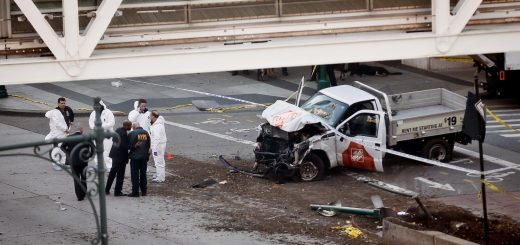An End to the Occupation

Like the repeatedly pummeled victim of depraved bullies who decides it might just be best to stay away from the schoolyard during recess, Israel recently opted to not show up to be judged by the United Nations Human Rights Council, a body with venerated members like Congo, Nigeria, Saudi Arabia, Uganda, Malaysia and Qatar.
The UN body and a number of individual countries, including the United States, pleaded with Israel to not be the first country to refuse to appear for an HRC “Universal Periodic Review.” But the Israeli government, in its chutzpah, decided to just say no to presenting itself for assault yet again by a group that has demonstrated a deep and troubling fixation on one political dispute in a world in which, elsewhere, authorities routinely amputate body parts, blithely murder citizens, incarcerate innocent people without trial and look the other way as human beings are enslaved and sold like sides of beef.
The New York Times, predictably, did its own huffing, munificently conceding that the HRC is “not without faults” but asserting all the same that the Middle East’s only stable and free democracy was showing “an unwillingness to undergo the same scrutiny as all other countries” and depriving itself “of an opportunity to defend against abuse charges” – as if anything Israel might possibly say in its defense could magically turn deranged, hateful people into reasonable ones.
An HRC panel’s findings, just released, were telling. The panel, made up of representatives of France, Pakistan and Botswana, contended that the establishment of Jewish settlements in “occupied” disputed territories violated the Geneva Conventions and constitutes a war crime.
“In other news,” as they say, the Washington Post, to its credit, issued a correction to a news story it ran last month that identified the Western Wall as “Judaism’s holiest site.” After being cajoled by the vigilant folks at the watchdog group CAMERA, the paper conceded that the wall, rather, is “the holiest place Jews can pray” but that “Judaism’s holiest place is the Temple Mount.”
The Post’s error is a common one. The BBC has made the same mistake, as have a number of other news organizations. It’s an error worth parsing.
Obviously, the Muslim world has its own narrative, but the history accepted for centuries before the founder of Islam’s great-grandfather was born has it that the Temple Mount, as its name testifies, was the site of Judaism’s central holy structure, first built by King Solomon a millennium before the advent even of Christianity. Hope for the restoration of the Temple as a place of Jewish worship has been a major element of Jewish prayer for the nearly 2000 years since the Second Temple was destroyed by the ancient Romans.
When Israel captured Jerusalem, including the Temple Mount, from Jordan in 1967, Jews and others flocked to the Western Wall; copious tears were shed and prayers prayed, as they still are there to this day. But Israel made clear that the Temple Mount itself would remain under the jurisdiction of a waqf, or Islamic authority.
It remains under that waqf’s authority to this day, and while some fringe nationalistic groups demand that Israel assert its dominance over the Temple site, Israel ensures that no such group can take any step to advance its cause. And no respected Jewish religious leader, whether haredi or national-religious, advocates for any imposed change to that status quo.
But every believing Jew knows that, through no military or political effort at all, one day Judaism’s holiest site will no longer host either a mosque, as it does today, or a church, as it did at other points in post-Jewish-Temple history, but a Divinely constructed Third Temple. The one we pray for thrice daily: “And may our eyes see Your return to Zion in mercy” and which will bypass – and undoubtedly come as a surprise to – the United Nations.
In the meantime, however, Jews are enjoined to accept the facts that the Messiah hasn’t yet arrived and that – as if it weren’t obvious – we live in a world often inhospitable to us. We are also enjoined to realize that, in order to merit the Messiah’s arrival, we must turn inward and become the best Jews we can be, kind, charitable and observant – sincerely dedicated, in other words, to the Torah’s laws and teachings. We would also do well, though, to remind at least ourselves, although the thought might confound the Human Rights Commission, that if any piece of Middle East real estate ever deserved the epithet “occupied,” it’s the one just beyond the Western Wall.
© 2013 Rabbi Avi Shafran
“It’s All in the Angle” (Torah Temimah Publications), a collection of selected essays by Rabbi Shafran, is now available from Judaica Press.
This essay may be reproduced or republished, unedited,
with the above copyright and note included.
(Communications: [email protected])



Recent Comments